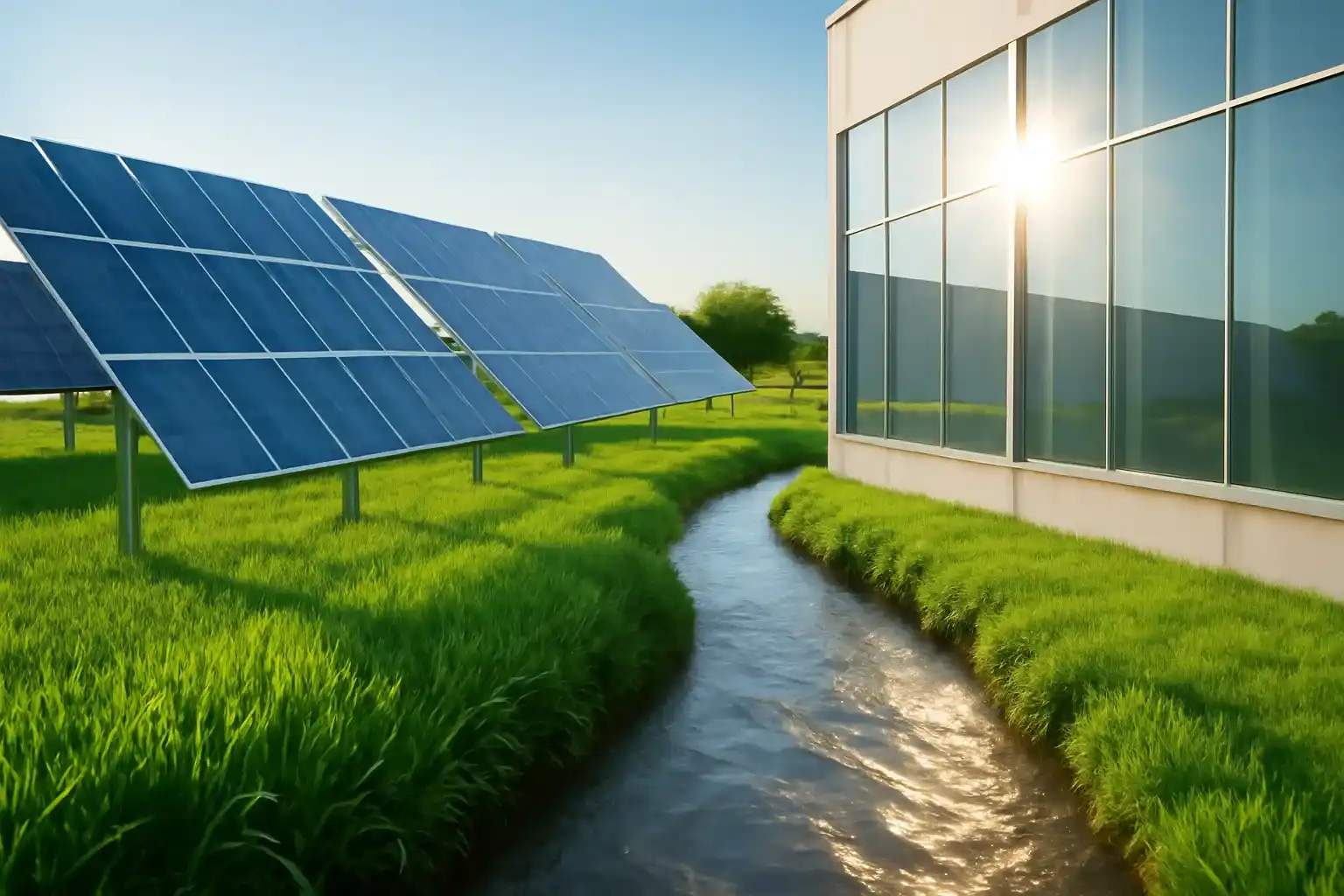The Future of Specialty Chemicals: Key Trends and Innovations Shaping the Industry

Specialty chemicals are crucial to augmenting the performance, durability, and eco-friendliness of end products, which serve the growing consumer preference for effectiveness and quality. The industry paradigms are altering at an exceptional speed due to the development of technologies such as green chemistry, biotechnology, and nanotechnology, which offer better ways of designing and manufacturing products. Moreover, regulatory backing and proactive measures are also taking their toll on the market patterns. Examples of these include the strategic approach to international chemicals management, which aims to conserve the environment and promote sustainability. The use of green specialty chemicals is being fueled by an increasing focus on environmentally friendly formulations, renewable resources, and cleaner production techniques.
Specialty chemicals include various chemical compounds designed to fulfill particular functional or performance needs in different industrial domains. These substances, which stand out for their particular makeup and uses, are vital components in producing many final goods, such as electronics, agrochemicals, cosmetics, and medications. Specialty chemicals, which are distinguished by their exceptional purity, unique functionality, and frequently proprietary formulations, are essential for improving the efficacy, longevity, and performance of products.
The key trends and innovations shaping the future of specialty chemicals are as follows:
 Source: IEA
Moreover, the biobased economy in the chemical sector is expected to increase due to innovations in bio-based chemicals derived from renewable resources such as vegetable oils, sugar, and starch. Moreover, companies are also adopting ‘greener’ methods of production, which include enzymatic and catalytic processes that are more environmentally friendly and efficient.
Source: IEA
Moreover, the biobased economy in the chemical sector is expected to increase due to innovations in bio-based chemicals derived from renewable resources such as vegetable oils, sugar, and starch. Moreover, companies are also adopting ‘greener’ methods of production, which include enzymatic and catalytic processes that are more environmentally friendly and efficient.
Explore the Specialty Chemicals Market in Depth
This article provides an overview. Our comprehensive report on the Specialty Chemicals Market offers detailed insights, growth forecasts, and competitive analysis to guide your business decisions.- ? Market Size & Growth Projections
- ? Key Trends & Innovations
- ? Regional & Application Insights
- Sustainability and renewable energy
- Increased digitalization
- Customized functions & solutions
- Increased resource efficiency
- Increasing use of nanotechnology & advanced materials
- Regulatory changes
1. Sustainability and renewable energy
In the specialty chemicals industry, a greater concern for sustainability is perhaps the most important factor that is inciting change. As a result of the increasing concern over the environmental footprint of chemical processes and their attendant products, businesses are focused on green chemistry, which seeks to minimize waste, energy consumption, and toxic emissions. Nowadays, it has become more common to use bio-based feedstocks, recyclable and compostable materials, and processes that are less energy-intensive. Moreover, the manufacturing of specialty chemicals is moving toward renewable materials, which is leading to increased demand for renewable energy. For instance, additions to renewable electricity capacity reached 507 GW in 2023, nearly 50% more than in 2022. Source: IEA
Moreover, the biobased economy in the chemical sector is expected to increase due to innovations in bio-based chemicals derived from renewable resources such as vegetable oils, sugar, and starch. Moreover, companies are also adopting ‘greener’ methods of production, which include enzymatic and catalytic processes that are more environmentally friendly and efficient.
Source: IEA
Moreover, the biobased economy in the chemical sector is expected to increase due to innovations in bio-based chemicals derived from renewable resources such as vegetable oils, sugar, and starch. Moreover, companies are also adopting ‘greener’ methods of production, which include enzymatic and catalytic processes that are more environmentally friendly and efficient.
Discover the Bio-based Chemicals Market
Sustainability is driving innovation in specialty chemicals. Explore our in-depth report on the Bio-based Chemicals Market to understand trends, applications, and growth opportunities.2. Increased digitalization
The digital technology integration strategy in chemical production is transforming the making and marketing of specialty chemicals. Industry 4.0, ie, the new age of production, has made manufacturing activities more flexible, efficient, and cost-friendly by automating processes, incorporating the use of artificial intelligence (AI), the Internet of Things (IoT), and leveraging data analytics. Firms can leverage predictive maintenance and the real-time data monitoring of equipment to use the machines effectively and ensure that there are no breakdowns. The compound design and the prediction of the compound's behaviour in practice are also becoming faster with the more advanced artificial intelligence algorithms, reducing the innovation time frames while also enhancing the precision of the formulations. Moreover, with the need for traceability and transparency being fulfilled, supply chains are adopting blockchain technology more and more.Learn About Blockchain in Chemical Supply Chains
Digitalization is revolutionizing specialty chemicals. Get our detailed report on the Blockchain Market to explore its impact on supply chain transparency and efficiency.3. Customized functions & solutions
Specialty chemicals are starting to be functional due to the demand for such chemicals in medicine, electronics, and automotive industries that require a high degree of endurance and enhancement. For example, lightweight adhesives and materials for electric vehicles (EVs) are more in focus by the automotive industry than ever before, while smart materials are aiding the healthcare industry in diagnostic tools and drug delivery systems. More so, specialty coatings, nanomaterials, and polymers have increasingly grown in popularity owing to their ability to deliver qualitative results while minimizing the resources spent.4. Increased resource efficiency
Due to the global compulsion towards circular economies, manufacturers of fine chemicals are also questioning the strategies they have in place towards waste management and resource usage. A circular economy not only focuses on product and process design but also on continuous resource use, remanufacturing, and, more importantly, reuse and recycling. To this effect, with innovations such as waste-to-chemical technologies and closed-loop recycling systems, businesses can recover useful resources from waste disposal streams. In addition, chemical upcycling is turning out to be an emerging area of focus in material chemistry, where discarded low-value raw materials are transformed into useful high-value products.5. Increasing use of nanotechnology & advanced materials
Nanotechnology is proving to be a game-changer in the area of specialty chemicals, which assists in designing and developing advanced materials with peculiar molecular structures. These materials find applications in various industries, including energy storage, electronics, and medicine. For example, paint, plastics, and oils have been enhanced through the use of nano-coatings and nano-additives. In the area of energy storage, nanomaterials are used for the manufacture of high-performance batteries and supercapacitors; in the healthcare sector, they are used in imaging or drug delivery. Growth of graphene, quantum dots, and other nanomaterials is expected to further change the specialty chemicals market.6. Regulatory changes
Changes in Environmental, Health, and Safety (EHS) regulations lead to innovations in manufacturing and product development processes, especially in the chemical sector, which is under intense scrutiny. For instance, the US Toxic Substances Control Act (TSCA) and the REACH (Registration, Evaluation, Authorisation and Restriction of Chemical Substances) legislation and these requirements compelling companies to use safer materials and processes. Regulations are also compelling a shift from the use of toxic, high-emission, and pollutant-active substances. Companies are investing to remain in compliance with R&D, the development of less-threatening materials, and eco-friendly manufacturing processes. In conclusion, the prospects of the specialty chemical market seem promising owing to many opportunities for growth and improvement. It is expected that novel materials that cater to the requirements of various sectors will be developed as a result of technological growth and the growing need for sustainable solutions. Given the nature of the industry, it is highly probable that the companies will have to put more money into research and development, cope with the ever-changing regulatory regimes, and create stronger supply chains shortly. It will also entail the collaboration of producers and consumers, together with the respective authorities. The extent and speed of the development of numerous sectors in the years to come will be dependent on the availability or otherwise of specialty chemicals. The market is projected to register growth and innovations shortly on account of the rising need for efficient, innovative, and environmentally friendly products and services.Go from Insight to Action with Our Market Research
You've seen the overview. Now, get the detailed data and strategic analysis you need to stay ahead in the specialty chemicals market. Explore our related, in-depth reports. Each report includes comprehensive data, forecasts, and competitive analysis to empower your business decisions.Get in Touch
Interested in this topic? Contact our analysts for more details.
Latest Blogs

Solar Control Window Films Market expected to reach USD 1,224.951 million by 2030
RecentlyTop Companies Leading the Silicon-Based Capacitor Revolution
Recently
The Role of Chemical Blowing Agents in Sustainable Foaming Solutions
Recently
Top 10 Emerging Beverages Set to Dominate the Market in the Coming Years
Recently